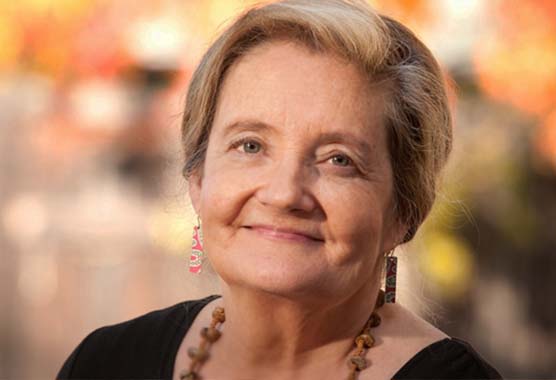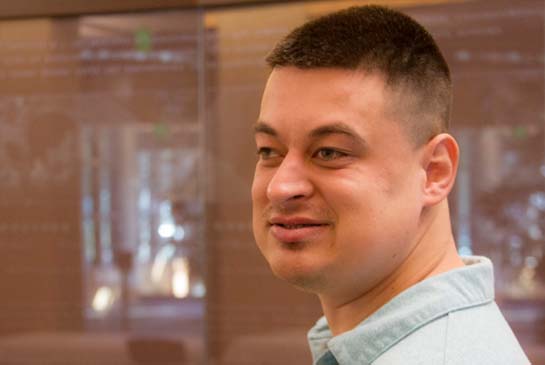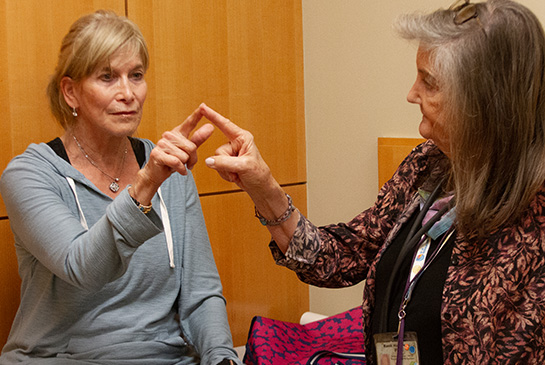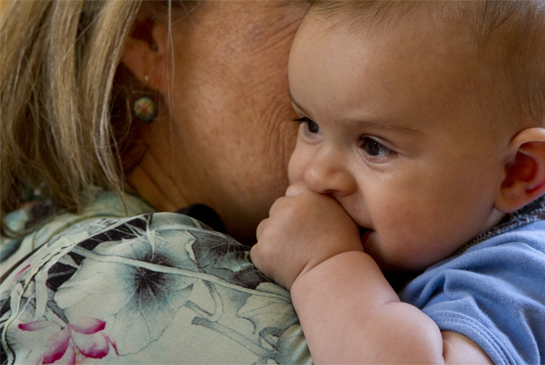
About Our Lab
Fragile X Syndrome is the most common inherited cause of intellectual disability and the most common known single-gene mutation leading to autism. The clinical features of FXS range from mild emotional, sensory and/or learning problems to severe intellectual disabilities and autism. The MIND Institute established the Fragile X Research and Treatment Program directed by Randi Hagerman, M.D., in 2001. Our clinical evaluations and treatments of patients with fragile X is an important component of our center and our clinical experience guides our research. Our center utilizes the expertise of professionals in various clinical disciplines, including Leonard Abbeduto, David Hessl, and Andrea Schneider, and molecular genetics, including Paul Hagerman and Flora Tassone. The close interaction of clinicians and scientists has led to important advances in our understanding of fragile X-related conditions and treatment.


Clinic Evaluations
An interdisciplinary staff and faculty are involved with the Fragile X Research and Treatment Program, including specialists in pediatrics, molecular genetics, psychiatry, psychology, neurology, neurobiology, pathology and social work. Most families who participate in an evaluation are involved with both clinical work and research protocols. We have evaluated children and adults with fragile X syndrome and also carriers with the premutation from locations regionally, nationally and internationally. We provide comprehensive clinical services, including psychological testing and medical assessment.
FORWARD-MARCH is the next step following a highly successful research study called FORWARD (Fragile X Online Registry With Accessible Research Database) that was started in 2012.
The FORWARD study created the largest database of information on fragile x in the United States. Data from the FORWARD study is being used by researchers to learn about the lives of people with fragile x. Thanks to families who contribute to FORWARD, researchers are learning about important things like medication use, behaviors, and development over time. These findings are shared with other researchers and clinicians in order to help develop targeted therapies and treatments.
The FORWARD-MARCH (Multiple Assessments for Research Characterization) project will collect more detailed information from participants with fragile x and add it to the existing FORWARD database. FORWARD-MARCH continues the mission of FORWARD to better understand fragile x in order to improve the lives of children and adolescents with fragile x and the lives of their families.
- Individuals with fragile x born between 2003 and 2017.
If you or someone you know would be interested to participate in this study, please contact Glenda M Espinal at gmespinal@ucdavis.edu or by phone at 916-703-0470 or 916-598-3351.
Genotype-Phenotype Study in Fragile X Families
Active through June 2028
This study aims to learn more about the fragile X premutation in older adults compared to those without. We will follow over 100 adults ages 55 to 85 with fragile X-associated tremor/ataxia syndrome in a prospective study to develop innovative clinical measures to identify areas of specific deficits and to identify biological markers for each stage of the syndrome. If you participate in this study, you can expect: visits to the MIND Institute every other year during the project period, totaling 2-3 visits, which will include a medical history exam, neuropsychological evaluation, behavioral testing, neurological evaluation, balance and tremor assessments, MRI, blood draw, and skin biopsy.
We are recruiting men and women with the premutation, ages 55-85 years, who are having symptoms of fragile X-associated tremor/ataxia syndrome.
Contact: Ellery Santos, at 916-703-0200 or ersantos@ucdavis.edu
Electroretinogram Activity and Peripheral FMRP Levels: Correlate biomarkers for fragile X
Active, open to enrollment through August 2024
The ERG/FMRP study aims to explore the correlation between the electroretinogram, an electrophysiological indicator of brain function, and the FMR1 protein. The electroretinogram eye test assesses the retina's electrical activity in reaction to light stimuli. Participants in the study will complete questionnaires, undergo a blood draw, participate in cognitive assessments, and partake in the electroretinogram evaluation.
Contact: Ellery Santos, at 916-703-0200 or ersantos@ucdavis.edu
Tetra 204: A Randomized, Double-Blind, Placebo-Controlled, Two-Part Study of BPN14770 in Male Adolescents (Aged 12 to <18 Years) with Fragile X Syndrome (BPN14770-CNS-204)
Active, open to enrollment in 2024
BPN14770 (Zatolmilast) is an investigational drug being developed for the treatment of Fragile X syndrome, Alzheimer’s disease, and other cognitive disorders. This study is testing BPN14770 to learn how the study drug acts in the body, how well it works, and if it is safe, compared to a placebo study drug (a treatment with no active ingredients that looks like the study drug).
Eligible participants are males ages 12 to 18 who have been diagnosed with fragile X syndrome.
Contact: Abigail Borbe, at 916-703-0281 or amoradelhigareda@ucdavis.edu
Tetra 301: A Randomized, Double-Blind, Placebo-Controlled, Two-Part Study of BPN14770 in Male Adolescents (Aged 18 to <45 Years) with Fragile X Syndrome (BPN14770-CNS-204)
Active, open to enrollment in 2024
BPN14770 (Zatolmilast) is an investigational drug being developed for the treatment of Fragile X syndrome. This study is testing BPN14770 to learn how well the study drug works and how safe the study drug is, compared to a placebo study drug (a treatment with no active ingredients that looks like the study drug).
Eligible participants are males ages 18 to 45 who have been diagnosed with Fragile X Syndrome.
Contact: Abigail Borbe, at 916-703-0281 or amamoradelhigareda@ucdavis.edu
Tetra 302: An Open-Label Extension study of BPN14770 in Subjects with Fragile X Syndrome (BPN14770-CNS-302)
Active, open to enrollment in 2024
BPN14770 (Zatolmilast) is an investigational drug being developed for the treatment of Fragile X syndrome, Alzheimer’s disease, and other cognitive disorders. This is an open-label extension study only for participants completing one of two double-blind clinical trials: Tetra 301 in adult males and Tetra 204 in adolescent males. The main goals of this study are to learn how safe the study drug is and how well the study drug works when taken for a longer period of time, in this case, up to one year (52 weeks). Everyone in the open-label study will take Zatolmilast.
Contact: Abigail Borbe, at 916-703-0281 or amoraamoradelhigareda@ucdavis.edu
Zynerba 17: An Open-Label Extension Study to Assess the Long-Term Safety and Tolerability of ZYN002 Administered as a Transdermal Gel to Children and Adolescents with Fragile X Syndrome
Active, closed for recruitment
The purpose of this study is to investigate how safe and effective the study drug, ZYN002, a topical cannabidiol gel, is in participants with Fragile X Syndrome, aged 3 through 17 years old, and how well it is tolerated. We expect the study to be up to 72 months after the screening visit. The visits are every 6 months, and they alternate from onsite to virtual. ZYN002 is an experimental treatment. This means that it is not approved by the Health Authorities including the United States Food and Drug Administration and must be tested to see if it is an effective treatment..
Contact: Melissa Heys, at 916-703-0301 or meheys@ucdavis.edu
Zynerba 33: A Randomized, Double-Blind, Placebo-Controlled Multiple- Center, Efficacy and Safety Study of ZYN002 Administered as a Transdermal Gel to Children and Adolescents with Fragile X Syndrome – RECONNECT
Active, open to enrollment through Spring 2024
The purpose of this study is to compare how effective and safe the study drug, ZYN002, a topical cannabidiol gel, works to treat behavioral symptoms of Fragile X Syndrome, compared to a placebo study drug (a treatment with no active ingredients that looks like the study drug).
Eligible participants have been diagnosed, via genetic testing, with Fragile X syndrome and are between 3 and 18 years old.
Contact: Melissa Heys, at 916-703-0301 or meheys@ucdavis.edu
Fragile X Syndrome Resources
Fragile X syndrome (FXS) is the most common inherited cause of intellectual disability and the most common known single-gene mutation leading to autism spectrum disorders. The clinical features of FXS range from mild emotional, sensory and/or learning problems to severe intellectual disabilities and autism.
Research Participant Registry
Our Research Participant Registry (RPR) is designed to match potential participants with the MIND Institute's human research studies. Your participation in research plays a vital role in improving awareness, understanding, prevention, care, and treatment of neurodevelopmental disabilities.
Contact Us
For questions that are not related to our studies, please contact Dr. Randi Hagerman's Executive Assistant, Julie Morcillo at jamorcillo@ucdavis.edu or 916-703-0257.
Map and Directions
Get detailed directions to the MIND Institute.



